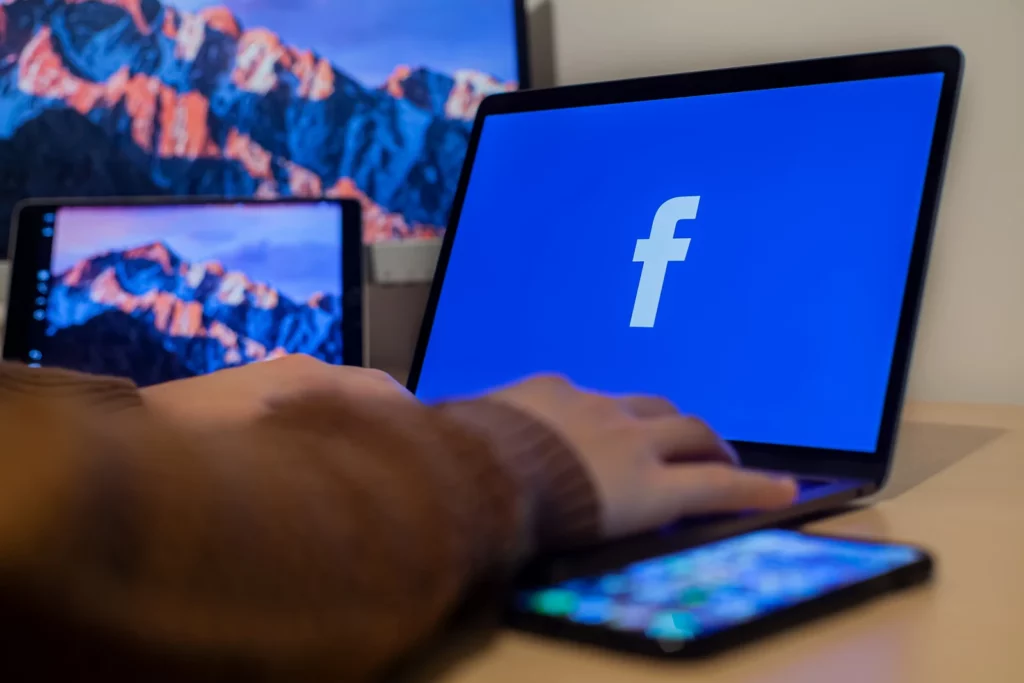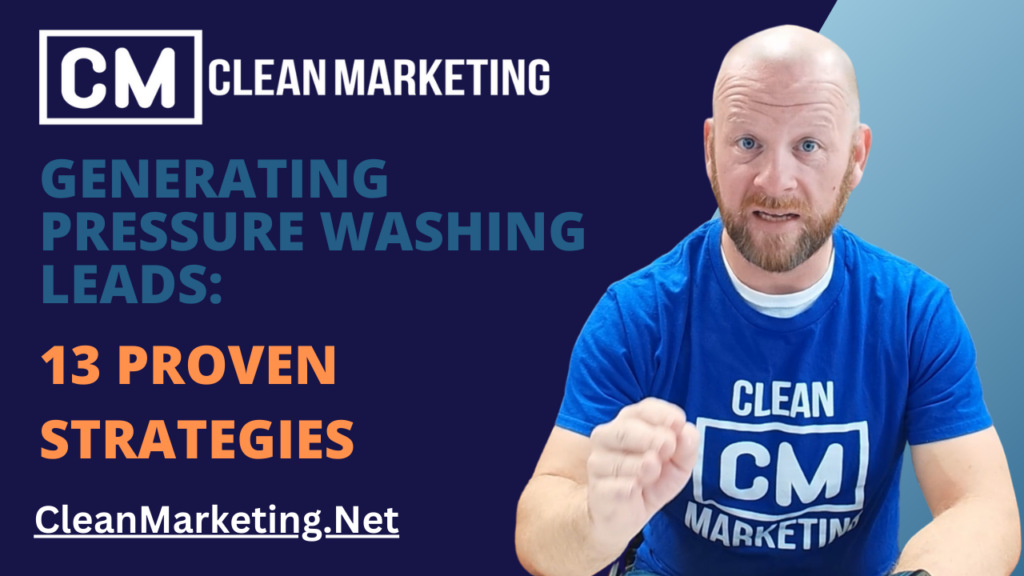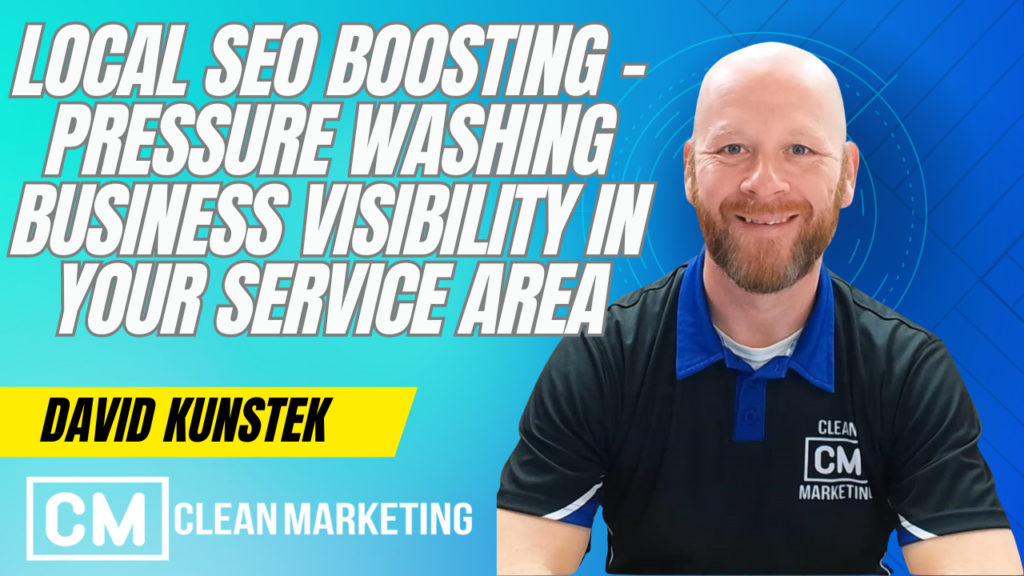The Art of Effective Follow-Ups in the Home Exterior Cleaning Industry
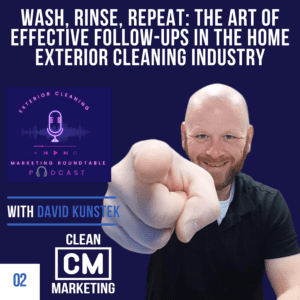
David Kunstek: All right, what’s up everybody? Dave Kunstek here with Clean Marketing, and our guest today is James Baskin of Outsource Kings. Now, what James does is he actually runs a follow-up company. What, what’s the, what’s the right word for
James Baskin: that? Call center. Call center. Employee management.
David Kunstek: Alright. Right. So call center employee management. And what he does for us and for our clients is he follows up with our leads. Very quickly, and he does it repeatedly, so nothing gets off the hook. I found James because I came into contact and ended up with his book, and then I ended up meeting him at a networking event.
And he, he started doing work for us. He started doing work for some of our clients and, and it’s been offered there. So the name of the episode here we’re doing is gonna be called Wash, rinse and Repeat the Art of Effective Follow-Up for the Home Service Cleaning Industry. So so. What we’re gonna go over here first is again, just a little bit about James’ experience and what he’s going to go into is why it is so important for pressure washing companies paper sealing companies, window cleaning companies, pretty much any home services of, of.
You know how to follow up quickly, what to say, and just what gets the point across and people to turn from prospects into leads. So just to start off here, Jim, now, how did you come to specialize in, you know, doing this type of service for HomeServices and specifically for us, the pressure
James Baskin: washing industries?
Yeah, so we got started working with marketers that had reached out to us with roofing windows inside and specifically gutters. Cuz usually roofers do all of those, or they do at least one of those. And the marketers said, Hey, our clients aren’t calling leads. They’re not texting people back, they’re not doing follow up.
Can you call leads for us? And that was probably. Shoot. That was pre, pre covid, so probably about three to four years ago that conversation happened with the marketer. Yep. And since then, you know, we’ve either worked with the marketer or we worked direct with the construction people themselves, or home service people themselves.
David Kunstek: Now again, just just to, to make this super simple, what’s happening is these companies are getting leads either on their own or from marketing companies like us. And the issue that you’re solving for them is the timely follow-up and even saying the right thing to get a booked appointments in the calendar.
Is that about summarize it? Exactly. Cool, cool. So what, what, like what are the key challenges that you find that, you know, the pressure wash industry, they, what, what they face when it comes to follow-ups?
James Baskin: Like what do you see? Well, it’s a few things. The first thing is actually calling the leads or answering their phone.
Mm-hmm. Yep. We see that. They’re busy right. They’re good at their job or their craft. That’s the big thing that I’ve seen for pretty much every home service and I’ll, I’ll let it go across the board to really any home service really, is that anyone that’s really ever good at their craft, they’re usually not good at business management.
And they’re, you know, they want to be in their, their field. They wanna be doing what they’re doing, actually doing the work. Yep, yep. And unfortunately, that means that sometimes they’re not that skilled or they’re not capable or they don’t want to answer their phone call back leads, they know they need to do it, they do it, but they’re like dragging their feet.
You know, we talked to a power washing guy that I don’t know when it was. Month ago or whatever. And he absolutely dreads having to do this stuff. He doesn’t wanna do it, he just wants to focus on his jobs. And I said, you know, this is the perfect fit. This is exactly what we do and we’ll do it for you.
And he’s like, wants to sell his business. That’s how much he doesn’t wanna do it anymore. Yeah.
David Kunstek: And it, it’s like, and it, it’s hard, especially when you’re like, say the you’re under $200,000, you know, in the pressure washing industry when you’re doing, cuz again, you’re tech, you’re probably at that rate, you’re probably still on a truck.
You might have, you probably might have two employees, maybe someone in the office. But when you’re on a roof, when you’re actually doing your job and the phone rings, and again, you’re trying to do a really good job at your job, but you know, if you don’t take that call, you’re, you could be losing business and you’re wasting money on leads.
So, like, I can see we’re just really Makes sense, sense. So how about can you walk us through the process of following up with customers, you know, once they, you know, You bring them in as lead, they come in, they fill out a form and they kind of raise their hand and say, Hey, I’m interested in this.
But obviously, you know, depending on how the marketing is, if it’s Google ads, they’re probably way interested. If it’s Facebook ads, you know, they might have just been, they might, might got caught up in the targeting and they’re like, they never thought about it, but they’re kind of, you know, they’re a little cold compared to another kind of a lead.
Like how do you, what is your process for handling those?
James Baskin: Yeah. So there’s, there’s two key things to remember as part of the process. Speed being number one. Yep. And the amount of follows being number two. Obviously there’s all other parts of it, but to talk on speed, how fast you call the lead is gonna matter.
These people specifically, I would say, if we’re gonna go the Facebook route, these people, and even Google actually it, they’re gonna go with whoever calls them back first or whoever answers the phone. You know, I don’t, I I don’t wanna say pre pressure, washing’s not a, not a pain, pain point type of service, but
David Kunstek: it’s kind of a luxury.
You know, you don’t, you don’t need to have it done. But, you know, it’s one of
those
James Baskin: things where they’re looking, they’re looking. When they’re looking, they’re looking, and they’re probably not gonna stop until they get it done. And they have no offense to any person that dominates their area. They probably have no idea who the number one person to go to in the area is.
They just know pressure washing. The insert city name, they’re gonna probably put in Google and Facebook’s probably gonna retarget them. Maybe they’re gonna look for a couple quotes, and if you answer their, your phone, they’re gonna probably go with you. I bet you more times out of none. And then the next thing is if you’re generating leads and part of our process, this is just to stick with you, the question is, Calling them, we call it 10 times.
Sometimes we do more. Yeah. I can tell you sometimes that’s nine times more than most people are gonna call their leads. Sometimes. I can’t tell you how many guys in home services tell me. I ask ’em, when do you guys call leads? If you do, and they say, oh, at the end of the day or in the morning,
David Kunstek: we hear that about what time.
You know, and a lot of times, even if we get the question like, you know, the leads aren’t panning out or they’re not answering the phone, it’s because they moved on. I mean, it really, I mean, you can still, you can still salvage some of them. But that first, you know, 15 minutes or even, you know, preferably like two to five minutes is super important.
Cause it’s on top of mind. Yep. Yep. So so again, obviously that you working with different home services industries, I’m sure you phrased your conversations a little different. How do you guys and your, how does your team personalize follow ups for, you know, the different types of customers that you might get?
Obviously you talk about pressure washing, you talk about roofing, you know, you pr I’m sure you have like other ones like HVAC and whatever else. But like, how, how do you personalize those based on sort of say, let’s say the higher ticket or lower ticket services? Like how do you, how do you change
James Baskin: up the conversation?
The, the thing then, the approach that we’ve always taken when we actually talk to the person is we, we get right down to it and also hold the person accountable. And, and I, I forget exactly why I phrased this on another talk I gave, but we get right to it. We say, Hey, I’m calling you because you were recently on our Facebook page.
Or, Hey, you had filled out something online and I’m getting you the information. Are you still interested in x, Y, Z service? And so it gets right to the point. They, I, I don’t, I can’t speak for how they feel, but I’m not here to waste their time or try to pretend like, oh, hey, we’ve got this new improved thing and they don’t even know what it is.
It’s like, Hey David, you were on our Facebook page yesterday about getting pressure washing services or getting your pavers, you know, cleaned or whatever, however, the verbiage is per se, that the client wants us to use, and it’s my job to get you that information and also set up a time for us to come out.
And are you still interested in this? And, and sometimes we don’t necessarily always phrase that it, it differs to be honest with you. Sometimes we always try different stuff. The thing that I was thinking about when you asked me this question was when we call, so one thing that I like how my team and I, we do this is we call fast, we call often, but we’re not invasive to like Yeah.
David Kunstek: On reports that I see you guys call, like, you know, if you don’t get, you know, you do once a day. We
James Baskin: do it once a day, but what I like even more that my team and, and I, I gotta give credit to my team here, and they kind of did this on their own. I can’t take credit for this at all. They, instead of calling them the same time every day, which I can’t tell you how many marketing or companies call me the same time, three o’clock every day, and until I answer the phone, stop calling me.
My team switches it up and I don’t know why they did this. And I, and I, I’m not gonna sit here and say that I did it. I’m not gonna take credit for it. They just decided that, hey, we’re gonna call these people random times of the day and I’m not talking like 9:00 PM I’m talking like, instead of three o’clock, let’s call ’em at one.
Let’s call ’em at five, let’s call ’em at 9:00 AM and they’ll switch it up each day, which I thought was, was really interesting. And the scattered of the times increases the pickup rate and then also, Yeah, it increases the pickup rate for people that might be busy. You know, someone fills out a Facebook lead and they’re at work.
Maybe they don’t have time to answer the phone. And then the fact that you’re calling at a different time it, it allows them to answer that phone call. And so, just to kind of clarify with that it’s getting right specific down to the point of why you’re calling. Yep. I’m calling cause you need my service.
Obviously not phrasing it like that, but I’m calling because, you know, you had filled this thing online. Or when you’re answering your phone, it’s saying the name of your company and what you do. Can’t tell you how many times we hear from contractors or home service people, or the marketer should say that works with them.
These people don’t answer their phone correctly, or it’s like, what do you want? How, how, who, who,
David Kunstek: who is this? Yeah, we hear that too. We, when we listen to recordings sometimes, you know, of the the calls are just not super professional or we’ll hear the front desk answer and honest to God, it seems like sometimes they’re either not trained well or, you know, they just have a different objective.
As far as, rather than trying to figure out what people want, they’re, they’re kind of treating the leads like a, like McDonald’s? No, you go, you go to McDonald’s, you know you’re gonna order, you know what you’re gonna order. Yeah. So what happens if a person says, I’m interested in getting my home cleaned and you know, like, I’ve heard this one a couple times, and they’ll be like, okay, it’s If you get with, with your first service, you can get 10% off your second service and third, 30% off your third service and like, you know, or something of that sort.
But for me, someone that’s a layman, and I don’t understand it, I mean, I want pressure washing. I don’t know what these other services are, but like, I don’t like they they talk to the people in a way. During that call where you know they’re putting these offers out there cause they sound good and the people giving the offers know exactly what they mean.
But a lot of times the people don’t understand that cuz like, you know, and what I mean by that, that could be roof cleaning as a separate service. The house washing. Window cleaning, you know, maybe the pavers in the backyard. These are all, these are all separate services, which again, if the people understood that better or it was just phrased a little different it would work better.
Now the other part is too, what I find is that booking the appointment for an in-person quotation works the best as far as closing. And I mean, I’d imagine it’d be easier for you guys to sell an appointment instead of the whole service.
James Baskin: Yeah. The, I, I, I would say I’m on the mind of every single customer, but sometimes they’re, they’re talking to multiple companies.
Yep. And it is gonna come down to whoever closes the deal at the end of the day. And believe it or not, that’s more than just, you know, sales in 2023 is so much different than what sales was in the early two thousands of, you know, some slick guy over the phone kind of thing. It, believe it or not, what I personally think sales is.
Who’s ever the most knowledgeable per perceived trustworthiness Of course. Yep. And shows up on time. I can’t tell you how many times I tell my contractors I work with, we wanna make sure we show up on time and we’re not sitting inside the truck. And I always make the joke that you’re not finishing up a cigarette and flicking it in their driveway when you show up to the job.
And, and, and people laugh because they know it’s true and it’s like it is.
David Kunstek: It is man drinking a monster. Even like smoking a cigarette like this past week, you know, I seen you know, some roofers on a roof and, you know, they were stripping si shingles. I mean, again, every culture is different, but there was two guys up in someone’s roof smoking a cigarette.
And like, again, I, I don’t care if people smoke. I’m not saying that at all, but I just think it’s a bad look for a company when you’re
James Baskin: on someone’s property. So, Yep. And it’s even worse. Look, if you sit idle in someone’s driveway as you’re wrapping, this is exactly what happens. I know it happens. Sit an idle in someone’s driveway, wrapping up a phone call, drinking their coffee, monster energy drink, whatever.
They’re drinking water, smoking a cigarette, and that homeowner is looking out the window and they’re making a buying decision factor. Yeah. If they’re gonna hire this person in that moment, and if that’s your first impression on them is, Hey, this guy, he’s in his driveway. He might’ve waved to me or maybe not, and they’re just sitting in the driveway.
It’s like that person’s already decided I’m not working with them.
David Kunstek: Nope, I agree. Agree. So now on from there, I know we got a little off track on that, but when you start working with somebody that obviously needs your services, you know, there’s, there’s some kind of a gap, you know, where you’re getting so many appointments.
So what do you feel like the impact of you guys coming in. And, or even, even for the people who maybe you talked to but don’t work with you, but then start calling people quicker. What do you feel like the impact on, you know, lead closing appointment setting? Do you feel that making these timely calls and repeated calls at different times of the day makes for a bit, you know, a home services business?
James Baskin: So, just to kind of clarify for the question, you’re saying the gap in regards to,
David Kunstek: Where they’re at now before either you or they start calling a little more timely, you know,
James Baskin: to where they go? Yeah. Yeah. And, and I love how you said gap. I, I found an old note that talked about, you know, the gap in someone’s business of where they’re at.
And that’s the bridge that we solve is, and that was a, a phrase that I used to use, is we’re the bridge that gets you from lead. To appointment and we’re that bridge. So I really like how you said the gap. So they, where they’re at now is they’re trying to manage everything, whether they’re writing down the leads name and they’re writing down if they called them back or the best contact, or maybe they’re using a crm.
If they aren’t, you know, they’re probably just trying to use their phone and trying to call back leads. Yep. And. Where they’re at afterwards is they get to just focus on their business. They’re not stuck as much in the business. There’s still work that needs to be done. The one thing that I always try to say is, you know, the people that we end up working with are people that want to work.
I never try to sell some dream like, oh, you’ll never work again if you hire us. There’s all these companies that try to sell some pipe dream like that. Yep, yep, yep. And so, The the bridge is we’re gonna call the leads, we’re gonna book the appointments, we’re gonna confirm the appointments to simplify it.
And then where the client’s at afterwards is they just show up. We had a, we had a guy that gave us testimonial a couple years back and he said, I just show up. James team does the rest. I just show up. And it was funny cuz he was in the gym when he recorded the video. He’s like, I just show up. I don’t call leads, I just show up.
And I was like, this is awesome. Yeah.
David Kunstek: So aside from there, like what, what types of, I mean, obviously you’re making phone calls, but what, like what, how do you organize things? Like how do you organize your calls, what kind of technology you use to, to reach out to them other, you know, if you use anything other than phone, like, like what, what, what’s your process
James Baskin: look like?
Yeah, so I’m really big on employee management and making sure the right people are in the right seats and Technology we use generally the dialers that the, the company uses. Okay. When we use their, their software there’s a bunch of different dialers out there. I’m not gonna go wait in depth, in depth diplomat, yeah, we don’t need get into that, but we generally use the, if they have their own software that they want us to use, we’ll use that job progress job Nimbus go high level and we’ll make the calls out of there.
And we keep it in their ecosystem. So hopefully I’m answering this question as best as, as you would like. But the big thing that I see with a lot of home service people is we’re not trying to add to their plate. So in terms of like our process, we, we, we have our process, yes, but we try to make sure that our process.
Is not more work on the client. So we’re not trying to add to the fact of what they need to do, and now all of a sudden we add another CRM or another thing that they have to do. It’s like, Hey, what are you guys doing currently? How can we plug into that and how can we make your job easier? Versus like, Hey, by the way, we need you to update this spreadsheet every single day at the end of your workday.
It’s like, nah, we’re not, we’re not here to make things harder for
David Kunstek: people. Yeah. Yeah. Now from there, you know, how do you know what to say to people? Like let’s say, obviously I’m sure you have your standard starter, like, here’s what works in the home service industry. But I’m sure you’ve experienced it doesn’t work for every customer, every niche, every, even you move into different parts of the country.
I’m sure the same script doesn’t work. Like w how do you guys track, you know, if things are being effective and how, like how do you, how do you decide what changes to make in what you’re saying to people for a particular client?
James Baskin: Talking when we’re talking to like the actual lead or to the,
David Kunstek: yeah, yeah.
We’re not talking b2b. We’re talking like, again, you’re, you’re falling up for a pressure washing company. You know, you have one in Texas, you have one in Orlando and one in Pennsylvania. You know? Yeah. Obviously some things
James Baskin: are gonna be different, like, yeah. So I always tell my team, If you don’t know something, ask and don’t pretend.
People can tell when you’re making stuff up. Yeah. And so what ends up happening is, let’s say for instance, if someone calls and they ask some really specified question about pressure washing that maybe we don’t know very likely, you know, we’re not an expert in everything, and I tell my team, don’t pretend.
We tell them, Hey, Our job is to get the appointment. Basically, you know, we tell the lead that our job is to get you the information and get a time set up for our expert to come out to your house. I’ll make sure that he covers this question with you. We write that question down and we either bring it up to our client or we just send it over as an email, and we don’t try to pretend that we’re an expert.
You know, we’ve worked in a whole bunch of different industries over the years, so. You know, for, for the roofing, for instance, these people will start asking about dimensions and sometimes they’ll start talking about, oh, we bought our own material from Gafe and blah, blah, blah, blah, blah, and all this stuff.
And, and my team, they’re not gonna know the answer to those questions and I know that, and I don’t hold that against them. And our clients don’t either. And our clients don’t want us to answer those questions. And so when they bring that stuff up, we tell ’em, Hey. You know, our roof and expert, he can cover all these questions when we come into the house.
And then what I like that we do is we go straight back into the booking of the appointment. If you would like, he can be out in your area tomorrow after three o’clock. Does that work for you? Like we don’t go into like, oh, hey, we don’t know what we’re talking about, but my, my boss does. It’s like, Hey, our roofing expert can help you answer all those questions.
What I can do is set up a time for us to talk tomorrow and. It just smooth. And, and, and most people they don’t have any issue with that. And they say, yeah, they probably, they probably think over the phone. Oh, that makes sense. I, I called the person. It’s probably someone answering the phone for them and they’re probably not gonna know the specifics either.
So that’s kinda like how we
David Kunstek: do that. Cool. Now I know you do this for us, but aside from that I know you guys also do appointment confirmation. So again, just to make sure you know, we’re not wasting our time, your clients are not wasting our time. So you guys have access to the calendar and you can go in and do day before or.
Prior to arrival kind of calls, what kind of impact do you see that doing that type of follow-up makes, you know, to me, what, what do you, what do you, what in your mind does it do? Cause for me, I feel like it makes us look more professional. Like we’re not this small little company, you know, when we have our ducks in order, but like, what do
James Baskin: you hear from your clients?
Yeah. So it, it originally got started for myself with my, my own insurance business seven years ago now at this point. And. We do it now for the home services and for the roofers and we even do it not so much anymore, but two hours before we used to do appointment. If the appointment was more than 50 miles away, we would do a two hour before reminder call.
Before the person would go out to the house. And so the impact that has, and I’ll kind of go backwards with from that, so mm-hmm. Two hours out person’s gonna drive 50 to a hundred miles to an appointment. What is that? Almost an hour and a half probably, depending
David Kunstek: on, yeah, depending if you’re in city traffic.
Could be more,
James Baskin: you could be more, right. Two hours in city traffic, hour and a half, and probably rural. So we would do two hours before, and what that ensures is, hey, if I’m gonna go out to your house, I want you to be home. You know what I mean? And I, it, it, it happened one time and that was enough for me that I said, Hey, you know what we’re, we’re doing call reminders either the day of or the day before, and sometimes both.
And so with Withers and with, you know, windows side and, you know obviously cleaning services pressure washing that. These people are driving their truck from one location to another. Gas isn’t cheap. I mean, it’s over three 50 to $4 now a gallon at this point. Yep. And these guys could be selling another job or doing another job.
The last thing I wanna have happen is then the drive to a job site, or it’s just a customer’s house and no one’s home. So the impact it has is like they don’t waste their time and, and believe it or not, You could help generate sales for a pressure washing company, for a home service business, HVAC roofing.
But if you have a a no-show, that’s gonna stand out more than the sales, I think. I really do. Absolutely. Especially
David Kunstek: if you feel like you wasted your time. You, I mean, see, you leave in the morning, go an hour and a half one way. Nobody’s home, hour and a half back, man. You just wasted half my day.
James Baskin: Yep. I’m, I’m gonna be upset as a contractor if that happens.
And so, The impact that we do. And just to take it a step further, we actually will look up there and, and I know you’re asking specifics and I wanna keep this as really transparent as possible. Yeah, you’re good. We actually will go on Zillow and we’ll actually look up the H House address to make sure it’s an actual address in an actual house.
We had it happen, I don’t know when it was three or four years ago, there was a plot of land that someone had as an address, and you can see those kind of plots of land on Zillow and it wasn’t a house. So we basically canceled the appointment and we called the homeowner and you know, oh yeah, I live here.
And dude, people do weird things on the internet and yeah, they do. You know, we’re like, oh, is your house one story or two story? And like, this is like an actual, like up to date on Zillow and It definitely was just a, it was just a plot of land and the people were just pretending over the phone to have a house and they made up an address and it was a plot of land.
And I thought to myself, if I sent a roofer out to a plot of land, would they still want to keep my services? Probably not. And so from then on, you know, we said we’re, we’re doing this across the board, we’re doing Zillow for everyone, and we’re making sure that there’s an actual home at the location, and we’re looking at that actual home beforehand.
No, that
David Kunstek: makes complete sense. So winding down here, I mean, I’ll just throw this at you, man. You’re, you’re the expert here. Sure. But what advice would you give a pressure washing company that’s struggling with their customer follow-up strategy? You know, again, obviously talking phone messenger calls, whatever.
Like what, like what could they do, like actionable if they heard this today to their process?
James Baskin: Yeah, the, the, the simple answer would be to answer my phone, but really I wanna keep this practical advice. You know, outside of hiring us, I mean, I’m not, I’m, you know, I’m not gonna put a huge plugin for us. If you wanna work with us, great.
But the, the simple answer is when you do answer your phone, make it cookie cutter of what you say to keep it easy on yourself. Hello, this is clean market and pressure washing. How can I help you? Make that just cookie cutter of whatever you say. Yeah, you’re gonna have friends that might call from a different number or something like that, and they might, they mightly like, what are you talking about?
It’s like, but you’re running a business. If you work for yourself, that’s your livelihood. And so you know when you get those phone calls that come in, if you have that cookie cutter response, People are gonna know what you do. And I saw it with the tow truck company in Philadelphia when I was in the airport one time.
This guy answered his phone, no lie, probably 50 to a hundred times, like within a 30 minute window while we were waiting for our plane. And he said the same thing every single time, over, over, over, over. And I said to myself, that’s kind of annoying. But at the same time, I was like, he’s got it down to a science of what he is saying.
So that’s the first thing I would say. Then some kind of tracking system. I mean, I’m keeping this realistic. Obviously, I could talk about technology and Google Sheets and crm. If you’re the pressure washer guy that’s on the road, make use of a phone or a notepad to start. And then once you can afford to hire someone, hire someone, you know, whether it’s me, another call and service, an in-house assistant, whatever that looks like for yourself, having someone answer your phones and call your leads is gonna remove you from the seat.
But I think first for you to experience it for yourself is, you know, having a cookie cutter response and then having some kind of system, like a check mark system. That’s what I, I use the check mark system. I would, I would write the lead name down. Yep. David Ek, his phone number, clean mark in, I called him once, check mark.
I called him twice, check mark. And in the beginning of the early days, I used to call my own leads and I used to use this check mark system and then I would call ’em back at different times. Oh, David said to call him back after three o’clock. Call back CB after three. And now my team, my team uses the same lingo that I use.
I used to write down CB 3:00 PM and I’d circle it and then I’d put a little reminder on my phone and be like, call David back. David. David Kunst. Step back. All right. Hey, what’s up David? I know you said to call you after three o’clock, and I would just do that. And then eventually I got so tired of doing it.
I started outsourcing and that’s how my company came about.
David Kunstek: That’s cool. That’s cool, man. So anyway, now I’m assuming this is James’ book. If you don’t have it, you can get a copy. Now, where is this available?
James Baskin: Amazon or anyone that hears this on David’s podcast. If they make, mention that you heard it on David’s podcast shoot me a DM on Facebook and we’ll get you a free copy and we’ll cover shipping.
David Kunstek: Yeah, and the website. I just don’t have it handy. It’s outsourced things, correct. Outsource
James Baskin: kings.com. Yep.
David Kunstek: Outsource kings.com. You know, and again, I’m gonna give you one more chance here for a quick shameless plug only because you know, when I go to these conferences and stuff, there’s a number of companies that I see, you know, they offer kind of what they do, but I’ve heard them.
I feel like you guys are a better fit. So the biggest one of all that I hear from or, and I see at these conferences, I always see the Jill’s office always has a booth, and I know you know who they are. How do you guys feel, like, how do you feel like you’re different from working with Jill, working with you?
James Baskin: I’m glad you bring that up and, and I. Oh, I’m, I’m trying to go back Mentally. We had a call with the guy that used them and, and I forget what he said that he didn’t like. I’m trying to go back. I’m gonna get it. Yeah. I’m not, I’m don’t, I’m not trying to knock anybody. No, no. I, I like it. I like it, man. I, I embrace it.
There’s a million d there’s not million, but there’s a lot of different services people can use. Mm-hmm. You know, it’s a free enterprise. I think what the guy had said, and, and, and it really kind of motivated, made it, it made me feel proud of what I do and it motivated me just to work harder. Yeah, yeah.
Yeah. Because he said that Jill’s office wouldn’t customize anything for like, what he wanted done. Now I get it at scale. Yeah. You can’t be, yeah, you can’t be doing one-off stuff. But I think he was like asking for like, like little things and they were like, no, we won’t do that. And it was just like the, so one thing that we do is.
I, and I can’t say it’s different than Jill’s cuz I, I’ve never worked with them but we have had some people that reached out with to us from that company and I won’t say anything negative about them cause I don’t really know. But I will say one thing that we do that a lot of people like and they’ve told us compared to other services, is we try to make it easy on them to use the service.
We try to keep it in their ecosystem. It’s not about a separate outside thing. We make it. We make it so much so that we’re an extension of their service. And that’s what the guy had told me. He said, you make it seem like you’re just an employee inside my company. I said, that’s my goal. I’m not trying to be some separate company that you just referenced.
I’m trying to literally be in your back pocket. Which also and I don’t know if it was gonna come up as a question, but it’s also what we’re moving into, which is employee management, where we literally manage employees for, for companies. And that employee essentially works for them. We find them, we pay ’em, we hire them, we train them, they’re already working for us, and we know they’re capable of it.
And then we basically assign one of our employees to a company. And then we have these people that have all these employees that they rent from us, and they don’t have to manage ’em.
David Kunstek: I don’t manage ’em to train ’em. They just come in, do their job and go home like a regular employee without. All the tax implications and everything else comes out of it.
Exactly,
James Baskin: yep. That’s the model that we’re moving into where it’s like, Hey, you can have this employee, they’re full-time for you. We’ll manage them a hundred percent. You don’t need to even communicate with them if you don’t want to. If you wanna communicate with them, that’s fine, and you know, either way we’re gonna manage them for you and train ’em as well.
And a lot of people are in the home services. We’re we’re, the name that we’re considering calling is basically like construction, virtual assistants, basically.
David Kunstek: Cool. Cool, man. Well, hey man. Hey, thanks so much for coming on. Yeah, appreciate it. And like I said earlier, you know, if you, if you have any questions about follow up, you know, what kind of scripts work, I mean, again, grab his book and out on Amazon, you knows, like a couple of bucks or, you know just shoot, shoot Jim a dm.
He’ll, he’ll actually send you a copy. Check out his website and if. A little plug for us if there’s anything we can do for you, your pressure washing, paver ceiling, window cleaning business, as far as generating more leads that Jim could follow up on if he really wanted ’em to shoot us a message. Get in touch, you know, we’ll set up a call and we’ll talk.
All right. Thanks guys, and we’ll see you in the next episode.
That’s great.

